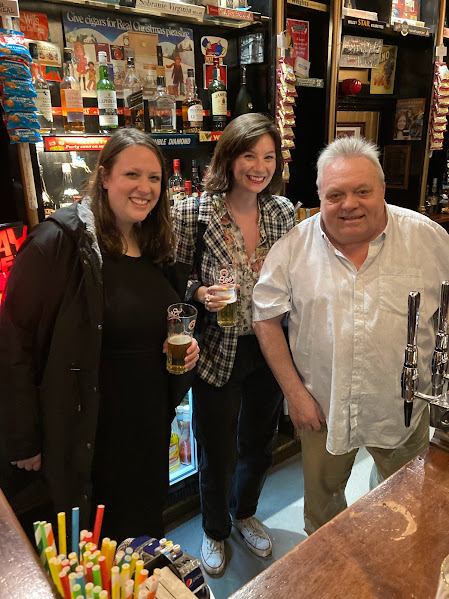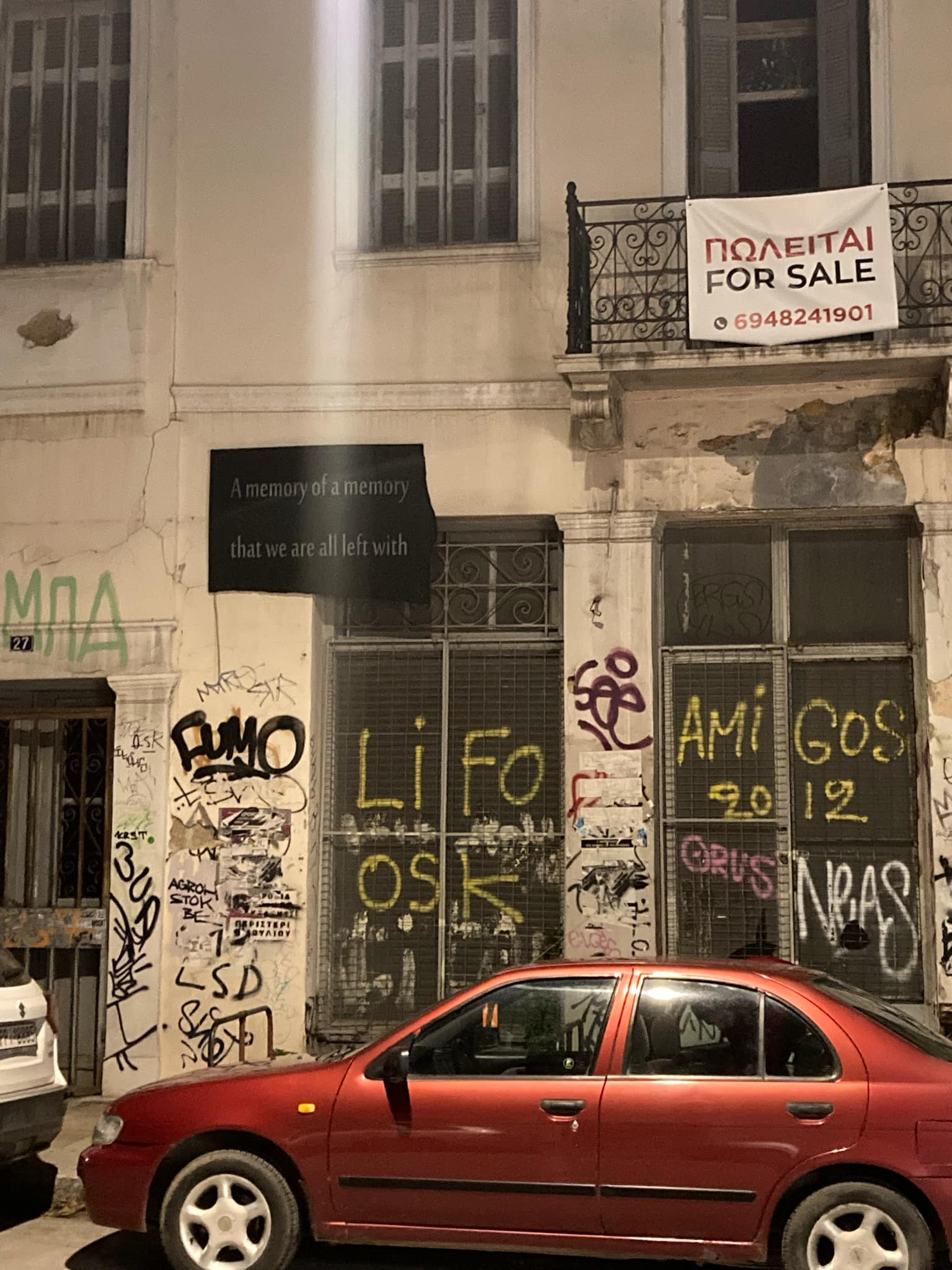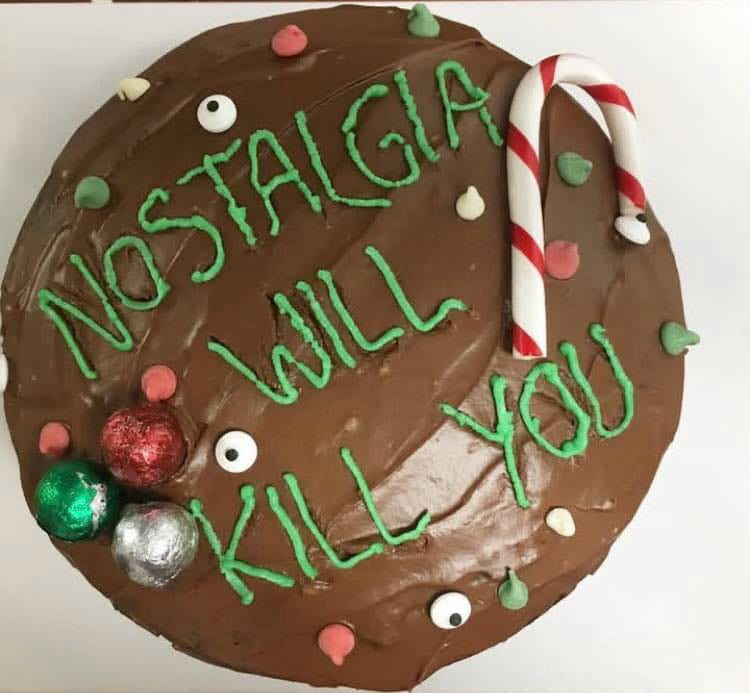It’s later than you think.
Ashley Denny Petch
I’m 37 years old. Every morning, I wake up and try to beat back the stagnant nostalgia that invades my body. My attempts are middling at best. Remedies include: a ban on listening to Bruce Springsteen’s ‘Glory Days’, never watching Cheers before 8pm and staying away from the search function on my (unfortunately named) group chat ‘Facebook Book’.
‘Facebook Book’ is the collective memory machine of myself and my four best friends. Group chats have become an essential element of socializing today, but back in September 2007, on a nascent website called Facebook, this was a new concept. Two of our friends were about to leave for a year abroad in Europe, so we created the group as a way to stay connected. Since then, we’ve been writing on the chat daily. Since 2010, we’ve never all lived in the same city at once, and it’s certain that we never will again.
The group chat is a moveable time capsule. It’s where I go to search how I feel about something that happened in October 2012, or to see how my thoughts on Napoleon have evolved over the years.
My memories are unreliable. The search function, however, is very reliable. It's my nostalgic nicotine. When I’m deep in the throes of my illness, I often search for the words: “mystery pub”...
[flashback time -🎵imagine some dreamy harp music playing🎵]
While Aron & Marissa were living in France for their year abroad, the 5 of us decided to reunite for a reading week trip to Europe. First stop, London. We met in Stansted Airport and made our way into the city.
On our list of things to do that first night was of course - have a pint in a classic English pub. We wandered the streets of a new and foreign neighbourhood that we found ourselves in. After searching for an hour, we finally managed to find a cute pub in an alley that had some space inside for the 5 of us.
We sat down and ordered 4 pints. Aron, who has never drank a beer in his life, asked the barman about the cocktail offerings, and the bartender ragged on him for a good 5 minutes before he handed him a rum and coke. He gave us Fosters hats, brought some shots and hung out with us for a while. He was British in the best way possible: equal parts folksy and withering. I’m assuming he found our Canadian earnestness entertaining.
I took this picture to commemorate the event.

From what I can remember, the rest of the trip went smoothly. London 🠊 Rome 🠊 Paris. 9 days, 1 hotel room for the 5 of us. Magda took us on a painfully thorough tour of Rome’s 2000 fountains at 1 AM. Marissa seduced a Vatican security guard. Ainsley accidentally ate a staple in Harrods. I stole a menu from Les Deux Magots. Aron tried to order ‘breakfast ice cream’ from an apoplectic Parisian waiter.
It’s impossible to remember the particularities of each day, where we went and what we saw. Covent Garden, Westminster Abbey, the Coliseum, the Vatican, the Louvre, Versailles- I’m sure we covered them all, but I can’t quite remember. What we have instead are these vague tableaus, honed from years of sketching out these chalky memories to each other - each time erasing and starting over again and again.
We came, we saw, we could have conquered if we wanted to.
A couple of years later, after grad school, Ainsley would move to London. Later on, I would join her there. (Ainsley still does live there. My visa ran out after 2 years.)
While we both lived in London, Ainsley and I would find ourselves having a pint in many a classic English pub. Sometimes, we’d reminisce about that first night of our trip to Europe. Where was that pub we went to? What neighborhood were we in that evening? It’s a strange feeling to try to recreate the city as a stranger once you know it intimately.
So, we made it a mission to find that mystery pub. With our belated insight as London residents, we attempted a forensic analysis of our memories. As for the physical evidence of that night, all we had were the picture and the decaying straw hats. Not much to go on.
So I set about consulting the group chat:
Based on their clues, we surmised that the pub must have been somewhere near Fleet Street/St. Pauls. And so over the course of several years, Ainsley & I scouted various locations, commemorating each incorrect stop with a pint, all while faithfully reporting our findings to the group chat.
Finally, I noticed a small lawyerly clue in the original photograph. My years working for UCL Laws had finally paid off!
Based on the clue, Ainsley and I headed back out again, this time certain we’d find the right pub.
The pub we had originally visited in 2008 was called the Devereux. It still existed but it had been completely remodeled inside and was therefore unrecognizable from our original picture. The barman had indeed been working at the Devereux in 2008, but in 2022 he owned the pub next door, The Edgar Wallace. And it was in the Edgar Wallace Pub that we happened to find him.
The pub itself didn’t exist anymore, but John the barman persisted, just in a different space and time. Is there a better illustration of the futility of trying to recapture the past?
We first sat in that pub in February 2008. We found the bartender again in March 2022. In those 14 years, here’s a small sample of what’s been recorded in the group chat:
- 2 engagements & 2 weddings
- 1 engagement, 1 canceled wedding, 1 visa-marriage, 1 divorce (These are all me. Contact me for relationship advice.)
- A small global pandemic
- 3 beautiful children
- 13 moves, by my count - Paris, Lyon, Krakow, York, London, Montreal, Boston, Toronto, Montreal again, London again, Vancouver, Athens, and then Athens again
- New relationships, new houses, new jobs
- One of us even became a surgeon! (not me…I was too busy planning and canceling weddings for medical school)


***
So, what is nostalgia and why is it always trying to hurt my feelings?
Nostalgia is displacement - it’s characterized by a longing to return to a time or a place that no longer exists. Despite its Hellenic makeup, it is not in fact a Greek word. The term ‘nostalgia’ was constructed by a Swiss German medical student, Johannes Hofer, in the 17th century, by using the greek root words nostos (νόστος) meaning homecoming and algia (ἄλγος) meaning pain. Thus, the word nostalgia itself is, in a sense, nostalgically Greek.
Hofer constructed the word to diagnose Swiss mercenary soldiers fighting abroad, who were so missing their homeland that they suffered physical symptoms. He believed that the Swiss mercenaries' suffering was linked to the absence of the familiar sound of mountain goats' bells ringing, a symbol of their homeland. Put simply, Hofer conceived of nostalgia as a pathological homesickness, rooted entirely in place.

It was Kant, our weird little friend, who connected the concept of nostalgia to time. It wasn’t actually a place that nostalgics want to return to, but rather a time, which is of course not possible.
“The homesickness of the Swiss…that seizes them when they are transferred to other lands is the result of a longing of the places where they enjoyed the very simple pleasures of life…For later, after they visit these same places, they are greatly disappointed in their expectations and thus also find their homesickness cured. To be sure, they think that this is because everything there has changed a great deal, but in fact it is because they cannot bring back their youth there.” 1
Speaking of carefree, unproblematic Germans, the 20th century philosopher Heidegger used the romantic poet Novalis’ line ‘Philosophy is really homesickness: the urge to be at home everywhere’ in the introduction of The Fundamental Concepts of Metaphysics: World, Finitude, Solitude (a recommended beach read!). He goes on to remark that nostalgia represents the fundamental tension between being and time - in fact, we can never ‘be at home’ because we are bound by temporality.
Jankelevitch, a philosopher with a nice face and a student of Henri Bergson, believed that the pain of nostalgia resides in our awareness of the irreversibility of time. He talked about the way in which the feelings of nostalgia are like those of being in love: “l'amour, comme la nostalgie, fabrique des lieux saints”. Jankelevtich emphasizes the causal relation - It’s not that the place or time is sacred, it’s nostalgia that makes us feel that it is. But of course, this just reinforces the specialness we feel about it. Nostalgia is “at once the cause and effect” 2
And the truth is that nostalgia does feel bad. It’s quicksand. I always linger too long in my memories and they mock me; they aren’t real and they know it. There is no fixed past, and actually, while we’re at it, there is no fixed present either. Nostalgia allows us to reconstruct the ideal version of the past and live there instead.
Places act as containers of memory. So what happens when the container is lost or transformed? Trying to find that mystery pub was ailment. As the years went on, I needed to connect my nostalgia to a specific place, to give it a postal address. I wanted to look at Google street view and for it to hurt.

I have always been susceptible to an unhealthy degree of nostalgia. I used to ask my mom for bedtime stories of the ‘olden times’ (which meant anywhere from 1980 to the 5th century). I take pictures of mundane things just so I can look them up two weeks later and reminisce. I miss demolished buildings I’ve never seen. I have what Freud might call a Problem. (Turns out the German word for problem is Problem! You learn something new everyday.)
I know I have a disease. So I combat this nostalgia by putting myself in situations where I am fundamentally unknowable to everyone—like moving to a city where I don’t speak the language, for example. The farther away I place myself from anything familiar, the easier it gets.
Homesickness is not my sickness. I’m never homesick. I crave exile. Deracinate me, daddy.
But nostalgia? I bathe in it.
An exhausted psychoanalyst might suggest that the reason for all this is because I resist the development of a sense of permanent self, or that I’m avoiding the profound attachment necessary for human connection, or that it’s a manner of regression where I seek an emotionally safe past as a defense of against of the anxiety of the present, or perhaps that I have an unconscious desire to avoid dependency and the inevitable disappointments of human connection, and thus detach myself from the present in order to avoid confronting the feelings of loss that the nostalgia is bringing up in the first place.
Honestly, I think I’m fine - I just need a new psychoanalyst.
Of course there were other trips. Ask us about the time we accidentally impounded Ainsley’s dad’s car at 4am in Manhattan. Or when I threw our printed mapquest directions out the car window to “make things interesting”. Or the time where we accidentally set fire to our table at a fancy restaurant in Boston (this one was NOT our fault). I’ll bore you for hours with these boring stories of our glory days.
If nostalgia is longing for a home you can’t return to, then the home I long for is this dysfunctional group of perfect weirdos. And it is indeed irretrievable. We cannot recreate the past. 20 years on, there are children and pets and homes and husbands and partners and (my) divorce lawyers to consider. It's been years since all of 5 of us have even been in the same room at once.
We cannot return to that pub unchanged. The present moment is eternal. That’s where the pain lives.


1 https://dokumen.pub/anthropology-from-a-pragmatic-point-of-view-0521671655-9780521671651.htm
2 The Irreversible and Nostalgia, Jankélévitch 285. [“à la fois la cause et l'effet.”]
Note:
Although she doesn’t make an appearance in the screenshots above, Magda is indeed real and part of the group chat. She’s the Maris of our friend group. And it delights me that she’ll have no idea what that means.